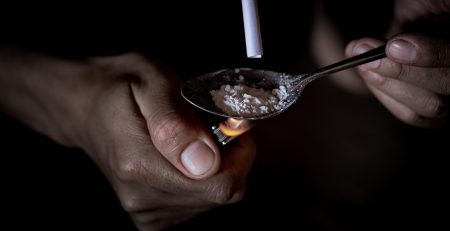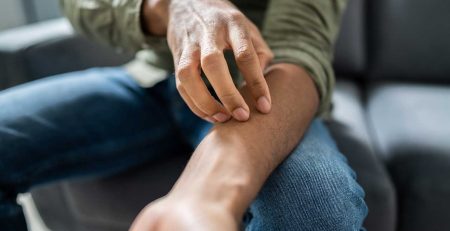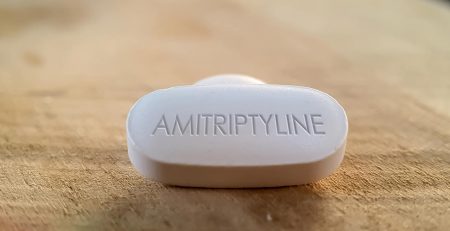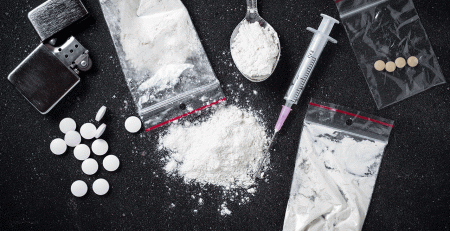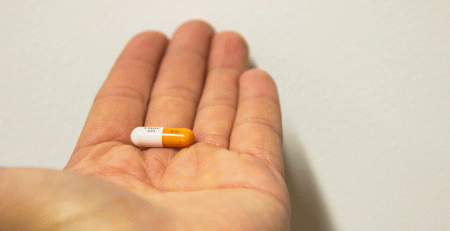Chronic pain and addiction are two complex and often interconnected conditions that can significantly impact an individual’s life. Both can be incredibly challenging to manage, and when they coexist, they can create a difficult cycle. For those who suffer from chronic pain, their condition’s constant discomfort and limitations can lead to feelings of hopelessness, frustration, and loneliness. On the other hand, for those who struggle with addiction, the desire for relief and escape can lead to substance dependence, and this only makes things worse. Today we’re exploring the relationship between chronic pain and drug addiction, the factors contributing to their co-occurrence, and whether a recovering addict can take pain medication as they learn to manage their sobriety.
What Is Chronic Pain?
Chronic pain refers to persistent pain that lasts for weeks, months, or years or beyond the normal healing time for a certain injury or condition. Chronic pain can be caused by various things, such as an injury, surgery, procedure, medical condition, or an ongoing disease. This problem can also manifest itself in various ways, including dull, aching, throbbing, or shooting sensations.
Chronic pain can also affect various areas of the body, such as the back, neck, joints, and muscles. Unlike acute – which usually signals that the body has sustained an injury or harm – chronic pain may persist even after the cause of the problem has been treated. This can make it challenging for the individual to manage and cope with their symptoms, damaging their emotional, physical, and social well-being.
Common causes of chronic pain include:
- HIV/AIDS
- Cancer
- Chronic fatigue syndrome
- Endometriosis or uterine fibroids
- Inflammatory bowel disease
- Interstitial cystitis
- Multiple sclerosis
- Obesity
- Long-term work that requires physical labor
- Poor posture or frequent bending
- Sleeping on a bad mattress
- Wearing high heels
- Years of improper lifting or carrying
Additional traits or signs of chronic pain also include an inability to move around or move freely, muscle tension, changes in appetite, and emotional frustration related to pain. Additionally, women, tobacco smokers, people who are obese, and individuals who have suffered an injury are at a higher risk of developing chronic pain.
Common Types of Chronic Pain Medication
Normally, both chronic pain and addiction are treated through therapy programs and (sometimes) medications. In the case of physical therapy, patients who need help with walking or completing daily tasks receive hands-on support. In other cases, patients may use medications in addition to practicing healthy lifestyles to cope with their condition.
For some, the management of chronic pain simply comes down to taking medication, sometimes several at once. Unfortunately, as effective as these prescription drugs may be in reducing pain, they can have side effects that may be disruptive to the individual’s lifestyle.
Medications commonly used for chronic pain relief include:
- Anti-inflammatory medications
- Anticonvulsant and anti-seizure medications
- Antidepressants
- Muscle relaxers
- Opioids
- Steroids (Prednisone)
If over-the-counter medications like Advil (ibuprofen) aren’t strong enough to reduce the individual’s pain, some patients may need to take prescribed medications like anti-inflammatories, muscle relaxers, or narcotics (opioids). However, these medications come with various side effects, including the potential for abuse and addiction. Whenever you’ve been prescribed medication, be sure to speak to your doctor about any potential risks and never discontinue any medications without direction from your doctor.
Relationship Between Chronic Pain & Addiction
As we previously mentioned, chronic pain and addiction often have a complex and interconnected relationship. When an individual experiences chronic pain, they may seek relief from the discomfort in different ways, such as by taking prescription medications or over-the-counter painkillers. While these methods can be effective in managing pain, they can also lead to dependence, tolerance, and addiction, especially if used over an extended period.
The longer someone uses certain drugs, especially medications like opioids, the more likely they are to require higher doses to achieve the same level of pain relief, increasing their risk of dependence and addiction. Moreover, the experience of chronic pain can have a significant impact on a person’s mental well-being, contributing to depression, anxiety, and stress.
It’s common for individuals suffering from mental illness to self-medication with substances like alcohol or prescription drugs, exacerbating their desire for relief and making them more susceptible to addiction. Addiction can also exacerbate chronic pain, as substance abuse can damage the body’s natural pain management systems, leading to increased sensitivity to pain (hyperalgesia) and reduced tolerance for pain medication.
The co-occurrence of chronic pain and addiction can create a cycle that’s challenging to break, as both conditions can reinforce each other, such as cases of alcohol and arthritis. Therefore, it’s essential to address both conditions simultaneously, using a multidisciplinary approach that includes pain management strategies, substance abuse treatment, and mental health support. With well-rounded care, the individual can break free from the cycle of chronic pain and addiction and achieve a more fulfilling and sustainable way of life.
Pain Management for Recovering Addicts
On the topic of chronic pain and addiction, it’s natural to wonder whether recovering addicts can take pain medications, especially individuals who suffered from opioid addiction. However, in addition to utilizing various psychotherapy programs like CBT and DBT for supporting sobriety in addition to other forms of therapy for pain, there are recovering addicts who can take pain medication without risking their sobriety.
Pain management can be achieved in individuals who are recovering from substance abuse by physicians following the basic guidelines established by the Joint Commission on Accreditation of Healthcare Organizations (JCAHO) as well as by the World Health Organization (WHO) in their stepladder approach to pain treatment. Additionally, any legal concerns with using pain medications in patients with substance use disorders can be dealt with by keeping clear documentation of the medication, dose, dosing interval, and amount provided.
Patients undergoing medication treatment can also participate in aftercare services at the rehabilitation center they attended to prevent relapse. For example, our Banyan Lake Worth rehab offers an alumni program that acts as a supportive network for clients who have completed treatment at our facility. We also offer 12-step recovery meetings and resources that can keep patients accountable through peer and sponsor support.
Chronic Pain and Addiction Treatment at BHOPB
In addition to various therapy programs designed to support clients in emotional and mental recovery, our BHOPB detox center also offers a variety of substance abuse programs designed to help addicts achieve long-term sobriety. For individuals struggling with an addiction to pain meds, we offer opioid and prescription drug addiction treatment options on both residential and outpatient levels of care.
Furthermore, as we previously mentioned, we also provide clients with aftercare support to help them smoothly transition to a sober lifestyle after rehab. Call Behavioral Health of the Palm Beaches today at 561-220-3981 to verify your insurance and find out more about our addiction treatment in Lake Worth.
Related Reading:




